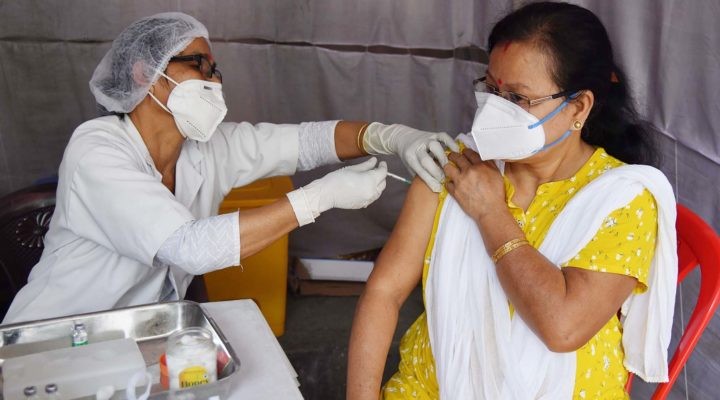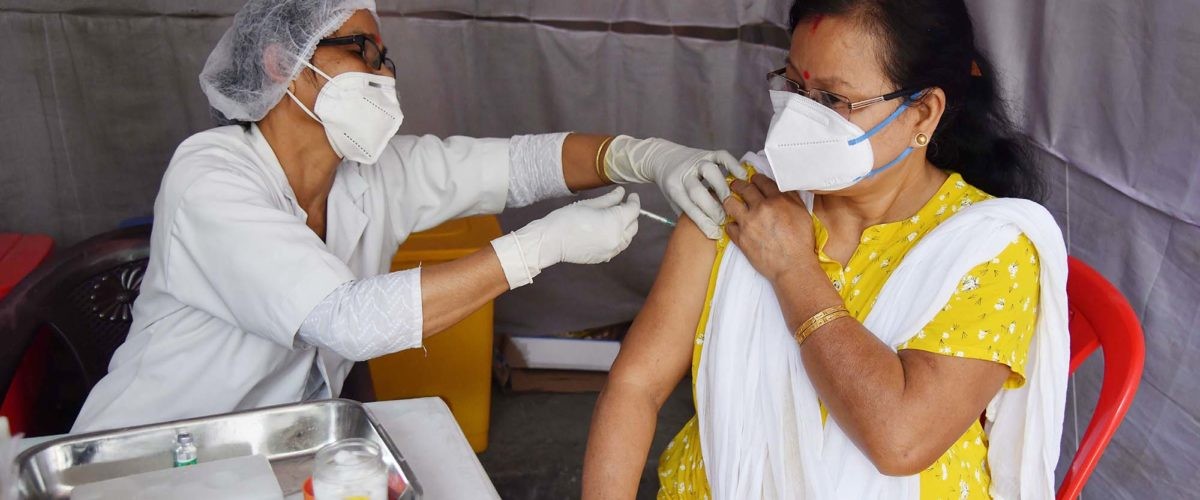That “love your neighbor” thing you keep hearing as a reason to take precautions against COVID-19 and get vaccinated? It has global implications, too, according to a Christian epidemiologist at the forefront of advocacy during the global pandemic.
Because coronavirus is a global pandemic and not just a national pandemic, what’s needed to stop it is a global concern, not just a national concern, according to Emily Smith, professor at Baylor University and author of the blog Friendly Neighbor Epidemiologist.
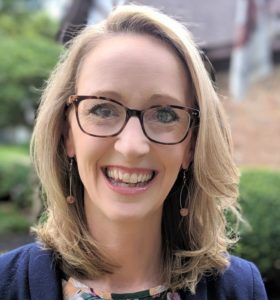
Emily Smith
Smith’s work has been featured in Baptist News Global and on national secular media, including a recent extended interview on the National Public Radio show “The Pulse.”
In a May 4 post on her own site, Smith reminded her thousands of followers that “’pandemic’ means the world.”
“We run the risk of thinking things are going back to relative normalcyish here in the high-income countries,” she said. “But I want to remind everyone that we are not out of this pandemic until everyone is out. The more virus spreading globally, the more variants can emerge, the higher the risk of one of those variants being more lethal + contagious.”
Americans, she warned, are being drawn into false security because of access to vaccines in the United States without realizing much of the rest of the world lacks the same vaccine access.
“The way out of this is vaccines — not ‘let it rip,’” she said. “Because when we ‘let it rip,’ it rips through communities/countries of poverty with a roar. We might all be susceptible to COVID-19; it’s what happens after that matters. That’s where poverty comes in.”
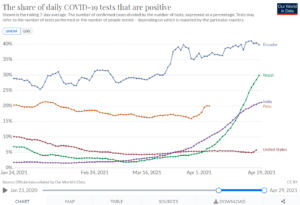 While in the United States 40% of adults already have received at least one dose of a COVID vaccine — and yet vaccine deniers are projected to keep the nation from reaching herd immunity — infections and deaths continue to soar in other parts of the world where vaccines remain in short supply.
While in the United States 40% of adults already have received at least one dose of a COVID vaccine — and yet vaccine deniers are projected to keep the nation from reaching herd immunity — infections and deaths continue to soar in other parts of the world where vaccines remain in short supply.
Most notable among those places right now is India, where more than 3,500 people a day are dying from coronavirus as hospitals are overflowing and access to oxygen has been rationed.
“We all know India is being hit hard. Look also at the curves for Peru, Nepal, and Ecuador,” Smith said in her post, pointing to a graph from the website Our World in Data. “Look also at the picture for test positivity rate. Those rates are huge and indicate we are not catching infections.”
What’s more, she said, is that these reported infections and deaths “are a fraction of what is happening in real-life. We are not seeing the reality.”
Prior to the pandemic, Smith was a trained authority in global health. She has traveled extensively and has contacts around the globe.
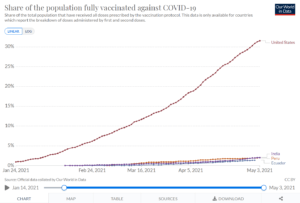 “I have friends and colleagues in these countries,” she reported. “They have heartbreaking stories of running out of oxygen, not being able to find a hospital bed, and friends dying trying to get to a hospital. I heard stories yesterday of families in the jungles of Peru getting Dengue fever and COVID-19 at the same time. If you are already poor, malnourished, hours away from a hospital — how can you fight those diseases? How do you pay for a funeral if you can’t even afford food for your family?”
“I have friends and colleagues in these countries,” she reported. “They have heartbreaking stories of running out of oxygen, not being able to find a hospital bed, and friends dying trying to get to a hospital. I heard stories yesterday of families in the jungles of Peru getting Dengue fever and COVID-19 at the same time. If you are already poor, malnourished, hours away from a hospital — how can you fight those diseases? How do you pay for a funeral if you can’t even afford food for your family?”
Loving the whole world — a core Christian teaching — demands having compassion on suffering people beyond our site, said Smith, who is married to a Baptist pastor. “I know we are all weary. But some have the feeling of weariness coupled with desperation of trying to find oxygen for their dad and food for their children. This is not equal. Let’s continue to get and give vaccines.”
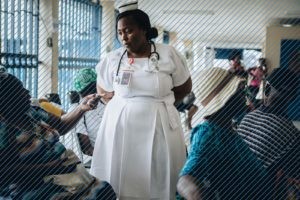
Trecia Simone Stewart, 41, a certified emergency nurse at the Spanish Town Hospital in Jamaica, speaks with patients in the emergency room waiting area. Patient faces have been obscured in the photo for privacy. (Photo: World Health Organization)
Global access to vaccines is a priority project of the World Health Organization. In January, Tedros Adhanom Ghebreyesus, WHO director general, warned: “The world is on the brink of a catastrophic moral failure, and the price of this failure will be paid with lives and livelihoods in the world’s poorest countries.”
The WHO reports that “a lack of supply and inequitable distribution of vaccines still remains the biggest threat to ending the acute stage of this pandemic and driving a global recovery. As long as the virus continues to circulate anywhere, trade and travel will continue to be disrupted, and the economic recovery will be further delayed. Continued transmission also means more variants that could potentially evade vaccines, as well as prolonged strain on the very health systems and health workers that protect us.”
In a May 4 release, the global charity UNICEF called attention to the whole of South Asia.
“The scenes we are witnessing in South Asia are unlike anything our region has seen before. Family members of patients are pleading for help as the region reels under an acute shortage of medical-grade oxygen. Exhausted health workers are being pushed to the brink of collapse. We are faced with a real possibility that our health systems will be strained to a breaking point — leading to even more loss of life,” the statement said.
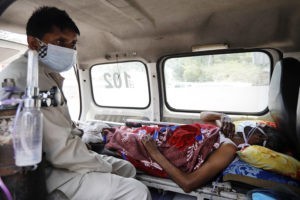
On May 2, 2021, Lekhraj, a 47-year-old COVID-19 patient, waits inside an ambulance for a bed at the Lok Nayak Jai Prakash hospital in New Delhi, India. (Photo: UNICEF)
The organization echoed the urgent appeal of Smith and other world health experts: “The international community must step up without delay. This is not just a moral imperative. The deadly new surge in South Asia threatens us all. It has the potential to reverse hard-earned global gains against the pandemic if not halted as soon as possible.
Across South Asia, with the exception of Maldives and Bhutan, fewer than 1 in 10 people have been vaccinated. “Now more than ever, we must ensure vaccines equitably reach all populations,” UNICEF urged. “Manufacturing must be ramped up, technology transferred, and doses equitably shared. None of us are safe until all of us are safe.
And for any Americans who think this isn’t their problem, UNICEF said the same thing Smith wrote: “Viruses know no borders. We must come together now as a global community to stop the devastation and protect our children.”
Related articles:
Your friendly neighbor epidemiologist has an important message for you
Interpreting the data: Why are some Christians getting vaccinated and others aren’t?
4 in 10 Americans don’t see getting vaccinated as a way to ‘love your neighbor’
Faith leaders are key to reaching herd immunity in U.S., researchers say

